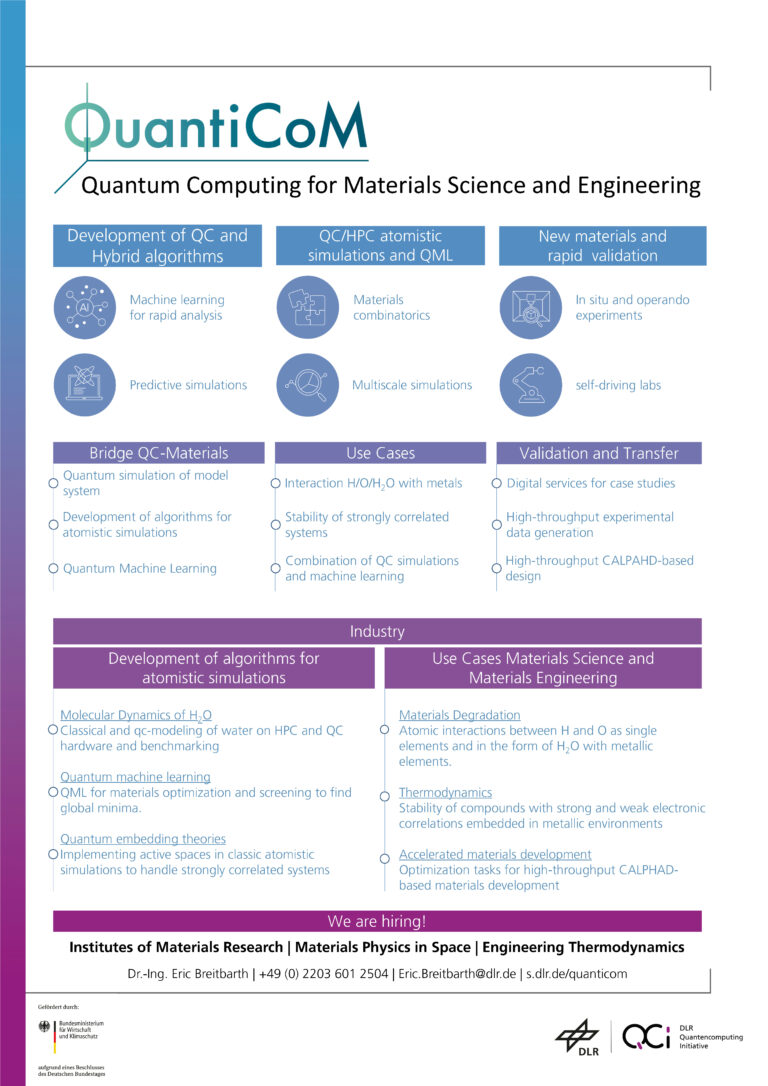Objective
We are exploring tools for the rapid discovery and development of new materials, their transfer to industrial partners for application, and the identification of simulation approaches that promise quantum advantage.
The aim of QuantiCoM is to develop advanced methods for materials science, materials engineering and industry that use quantum computers to enable the rapid discovery of new materials in the future and to drastically reduce development times. We are using quantum mechanical effects, such as superposition and entanglement, to make the interactions between atomic systems within a material calculable. As computation times on quantum computers scale polynomially rather than exponentially, we will be able to identify potential quantum advantages that will contribute to the implementation of quantum algorithms and their associated industrial benefits. Similarly, new insights into interaction and degradation processes will advance the development of materials, which will then be tested through experimental validation methods.
Motivation
In principle, we can already simulate material systems on an atomic level today and predict their macroscopic properties. However, the multitude of interactions makes it impossible to compute larger atomic systems even on current high-performance computers. In order to develop suitable quantum algorithms on noisy intermediate-scale quantum (NISQ) computers, we are combining the knowledge of three DLR institutes with complementary expertise in the field of metallic materials, molecular dynamics for liquids and the quantum mechanics of battery systems, as these can in principle be computed at an atomic level in a similar way. Physicists will investigate possibilities for entanglement and its use, assess its relevance, and identify quantum advantages. Industry will contribute towards both the development of QC algorithms and in the implementation of quantum algorithms such as quantum embedding theories.
Challenge
With the QuantiCoM project, we want to identify material systems for which a quantum advantage can be expected. For this purpose, we aim to perform QC simulations of relatively simple compounds. In this phase, we want to develop algorithms for QC calculations that extend the performance of systems that model more than 103 atoms and discuss the applications in an industrial setting.
We will also investigate the stability of certain compounds that contribute to the optimisation of pre-treatment and heat treatment processes. By determining the interactions between atoms in solids, technically relevant phenomena such as precipitation kinetics can be explored.
By performing QC optimisation tasks for material development based on Calculation of Phase Diagrams (CALPHAD), we support Rapid Materials Discovery. This is relevant, for example, for the development of novel alloys based on recycled materials. Industry would thus be encouraged to utilise scrap material from combustion engines and to derive practical strategies for recycling or even upcycling.






